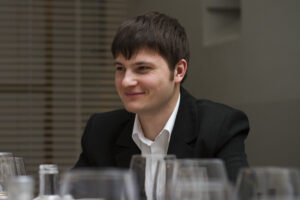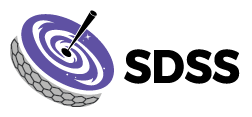
1. Can you describe your role in the SDSS collaboration and what you enjoy most about it?
My current role in the SDSS-V Collaboration is to steer the MWM machinery in the position of the Program Head (PH). Before stepping in as a PH in September 2023, I was a Survey Scientist for a total of about six years with the focus on hot (binary) stars. What I enjoy most about the SDSS-V collaboration is that it can actually be called Collaboration without any hesitation. People are largely united: as the Collaboration, we move forward together in trying to achieve all the ambitious goals and reach the high bar that we have set for ourselves, as well as we face and resolve together all the roadblocks that we are hitting on our way. I’m delighted to be part of such a strong Collaboration and am very honoured with the opportunity to be the MWM Program Head.
2. Can you tell us about your educational background and how you got interested in the field of astronomy/astrophysics?
Bachelor (2006) and Master (2007) degrees in Physics from Tavrian National University, Crimea, Ukraine. PhD in astronomy (2010) from the University of Jena, Germany. My interest to the field of astronomy/astrophysics has been triggered accidentally during the last year of my bachelor studies. I have been fully dedicated to playing basketball in the University team and competing in the Ukrainian Basketball High League. Until a friend of mine mentioned once that his uncle is a researcher in the field of stellar astrophysics and he is looking for motivated students starting their masters to work with him on the analysis of chemically peculiar stars. That’s how I got engaged with stellar astrophysics and still am these days.
3. What projects are you currently working on and what are you most excited about?
Two major projects I’m working on are SDSS-V and PLATO (PLAnetary Transits and Oscillations of stars) space-based mission. My role in the latter project is an overall coordination of the Complementary Science Program. As the name suggests, this program concerns science topics that are not included in the definition of the Core Science of the mission and is established to maximize scientific return of the mission. Topics that we cover in the PLATO Complementary Science program are very diverse, ranging from stellar physics (pulsations, magnetism, winds, binarity, YSOs, etc.) to extragalactic astronomy and transient phenomena (supermassive black hole binaries, novae, etc.). My excitement about the SDSS-V and PLATO projects concerns diversity of physics that these projects (in tandem and independent of each other) will unravel thanks to their observational strategies and quality of data they will deliver.
4. Can you describe how you balance work and personal life, and what advice would you give to someone just starting in the field?
Unfortunately, I cannot describe my work-personal life balance because there is no balance. I prioritize efficiency over balance, and this translates into me working with daily, weekly, monthly, and yearly “to-do” lists. Anything I do in my life (work, hobbies, family, etc.) are “tasks” in my “to-do” lists, and this is the only way things work for me. However, this approach assumes that there is literally no time in my life when I am 100% disconnected from work…or family and hobbies, for that matter. For example, it is frequently the case that I combine running or biking with SDSS-V telecons. Such an approach creates a lot of pressure on a person, hence when somebody asks me “what advice would you give to a ECR on the matter of work-personal life balance”, my answer is always the same “Look at what I do and do not even try to repeat it, just be more clever”.
5. Can you share with us a unique hobby or interest that you have outside of work?
Playing football, walking, biking, hiking, and basically any outdoor activity with kids; basketball; fishing; poker (mostly online these days)
